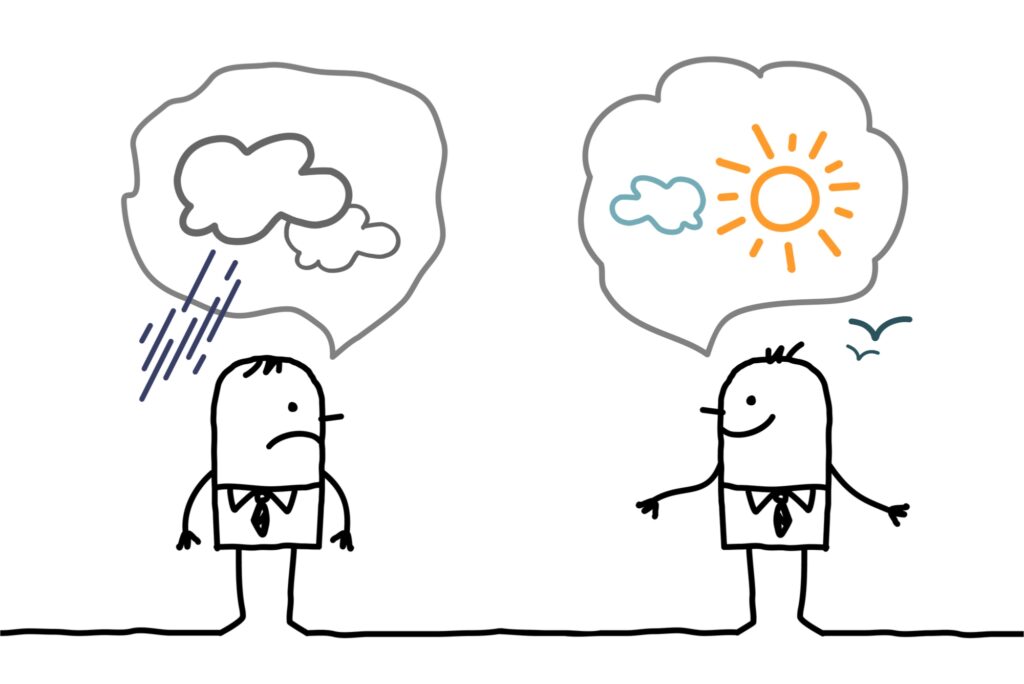Where you are today is the end result of all your decisions. For example, you have a job because you chose to look for and do what was necessary to get one. Imagine not ever making such a decision because you felt you had bad interviewing skills, and improving them was hopeless. You wouldn’t be enjoying the benefits of your current career and might be living a destitute life.
If you’re neither an all-out pessimist or a complete optimist, then your current position in life was made possible by the decisions and risks you chose to take up to this point. However, it’s very likely that opportunities were missed because limiting beliefs prevented you from looking for them and exploring those that came your way. These pessimistic beliefs act as a kind of brake that permits you to only get so far.
Pessimism is also detrimental to job performance. The pessimist is a kind of “can’t-do” person as opposed to the “can-do” mindset of the optimist. That is, the pessimist focuses 100% on reasons why the barriers to progress are insurmountable. On the other hand, the optimist believes there is a solution and perhaps several solutions that remain to be discovered. In the world of business and of people, this is usually the case. Solving difficult problems requires persistence and a willingness to look for solutions in unlikely places. It also demands a great deal of energy and effort, which the optimist is willing to expend.
By contrast, the pessimist wouldn’t exert any effort because he or she has already determined that solving the problem is impossible. The middle-of-the-road person between pessimist and optimist would exert some effort but would reach a breaking point in which doubts prevent him from putting in the required effort. Eventually, the optimist’s persistence pays off and she solves the problem and perhaps gets a promotion for this and other similar accomplishments.
This is why optimists tend to find greater success in their careers and in other aspects of their lives. They also enjoy other benefits. Stress is less of a problem for them and they may even thrive on it. Many optimists perceive stress as exhilaration induced by a challenge. This means they’re less likely to suffer stress related health problems. Their optimism, if authentic, also permeates their interactions with other people, which makes them more likeable.
Fortunately for those who aren’t optimists, the trait can be learned. Positive self affirmation, affirmation of others, questioning the reality of one’s limiting beliefs, and associating with optimistic people all contribute to changing one’s pessimistic ways.


